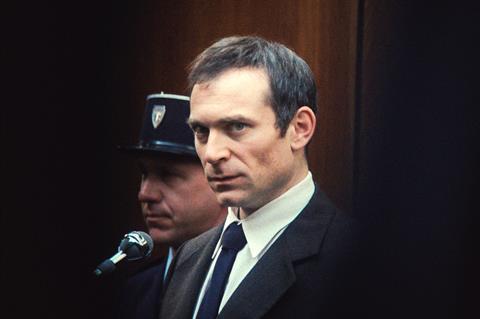
Glamour and gripes are poised to collide this year as Cannes kicks off in the most French way imaginable with French films opening every section for the first time in many years – from Maiwenn’s Jeanne Du Barry to The Animal Kingdom in Un Certain Regard, The Goldman Case in Directors’ Fortnight and Ama Gloria at Critics’ Week – and protests from labour unions threatening to spill over onto the Croisette.
Despite a ban on protests during the festival by the city of Cannes, French labour union the CGT is planning a demonstration on May 21, just outside of the limits of the ruling, at the Rond Point de Grande Bretagne. about a 30-minute walk from the Palais.
The group is also calling for a smaller rally in the courtyard of the recently reopened Carlton hotel on Friday May 19 to bring together employees of the local hospitality sector.
The CGT posted a rallying cry to its regional site announcing it plans to “fait son cinéma à Cannes” – or “to do its cinema,” a French expression that means it plans to “make a scene” despite the prefecture of the Alpes-Maritime region announcing that it was banning all public gatherings and protests in central Cannes during the dates of the festival (May 16-28), “to ensure public order.”
The defined area includes usual festival hubs the Croisette, the Palais des Festivals and Rue d’Antibes, all the way through the Promenade de Pantiero, home to the Marché du Film’s International Village of pavilions, and even to the yacht-lined jetée Albert Edouard.
The impermanent pause on protesting isn’t anything new – the ban was in place last year and security has been heightened to the same level since terrorist attacks in 2016. The prefecture said that “this ban is identical to that of previous years.”
Security measures
As usual during the festival, the city of Cannes itself continues its year-round security measures with local teams in addition to reinforcement from the national police that patrols the area by land, sea and sky and even more private security put in place by the festival on a daily basis and for private soirées, for a total of more than 1,000 law enforcement officers on foot, four wheels, two wheels and horseback by day and by night. The city of Cannes itself has 833 video surveillance cameras in place all year long watching every move and will be on high alert throughout the event.
The French film union SPIAC-CG (Le Syndicat des Professionnelles des Industries de l’Audiovisuel et du cinéma) which notably has a seat on the board of the Cannes Film Festival, has also organised an invite-only screening at the Buñuel theatre for Marta Rodriguez and de Jorge Silva Amor’s 1998 documentary Love, Women And Flowers, followed by a debate about women’s struggle for equal pay and working conditions in the world and within the global film industry, organised with French gender equality organisation the 50/50 Collective.
On screen, the spirit of Gallic revolution is very much alive in those French films. In particular, opening film Jeanne Du Barry is the story of a scandal that rocked the 18th Century French court, while Cedric Kahn’s Directors’ Fornright opener The Goldman Case is also about the scandal-sparking French left-wing revolutionary Pierre Goldman, who was convicted of robbery and subsequently murdered.

























No comments yet